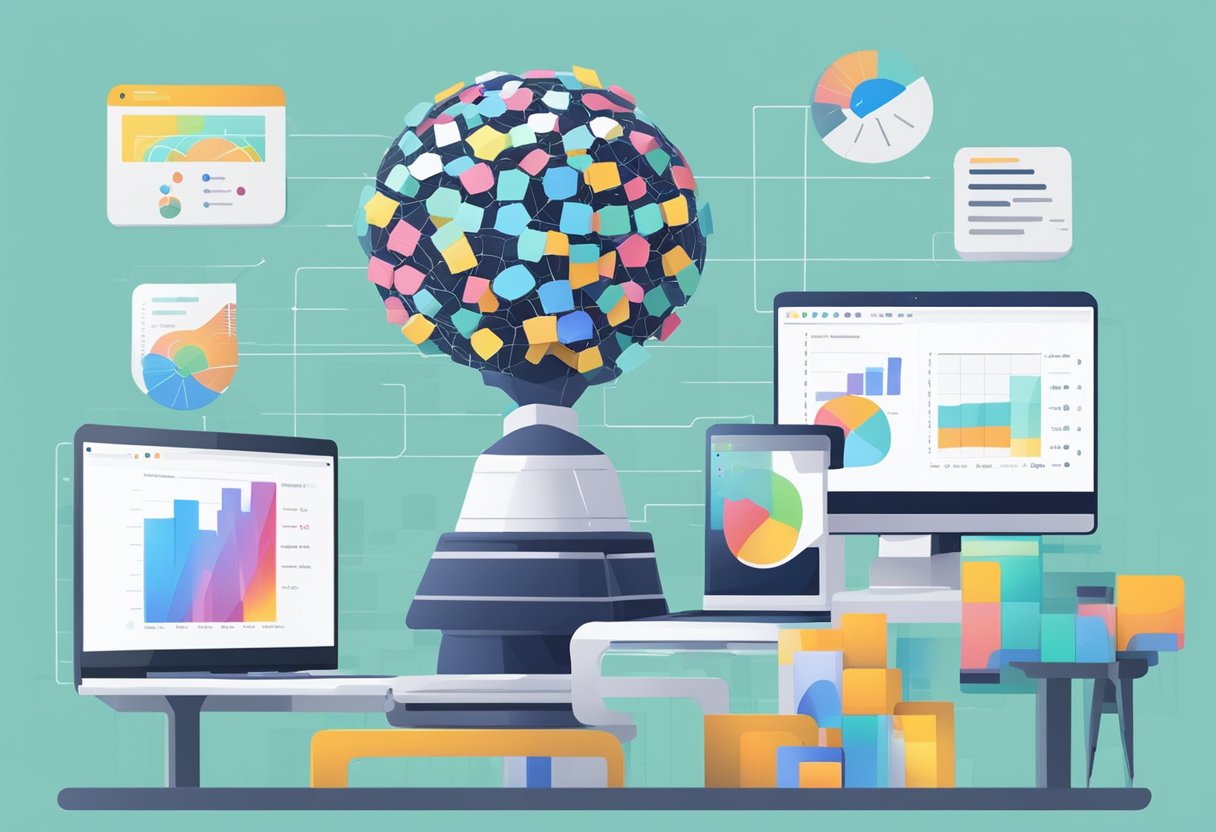Artificial intelligence (AI) is transforming the way educational content is delivered and assessed. AI has the potential to revolutionize the education sector by providing personalized learning experiences, automating administrative tasks, and improving the accuracy of assessments.
As the demand for personalized education grows, AI-driven tools are becoming increasingly popular in educational settings.
The rise of AI in educational settings has led to the development of new tools that can help teachers and students alike. AI-driven assessment and feedback mechanisms can provide students with immediate feedback on their performance, enabling them to identify areas where they need improvement.
These tools can also help teachers to identify areas where students are struggling, allowing them to provide targeted support and guidance.
Enhancing learning experiences with AI is another area where the technology is having a significant impact. By analyzing data on student performance, AI can provide personalized recommendations for learning materials and activities that are tailored to each student’s needs.
This can help students to stay engaged and motivated, leading to better learning outcomes.
Key Takeaways
- AI is transforming educational content delivery and assessment by providing personalized learning experiences and automating administrative tasks.
- AI-driven assessment and feedback mechanisms can provide students with immediate feedback on their performance and help teachers to identify areas where students are struggling.
- Enhancing learning experiences with AI can help students to stay engaged and motivated, leading to better learning outcomes.
The Rise of AI in Educational Settings
Artificial Intelligence (AI) is transforming the way educational content is delivered and assessed. Advances in AI have made it possible to personalize learning experiences for learners and provide innovative teaching tools for educators.
This section will explore how AI is transforming educational settings and its role in personalized learning.
Transformative Education Through AI
Adaptive learning is one of the ways AI is transforming education. AI algorithms are used to analyze data on learners’ abilities and learning styles, and then adapt the content and pace of learning to meet individual needs.
This approach ensures that learners receive content that is tailored to their needs, making learning more efficient and effective.
AI is also driving innovation in educational content delivery. For instance, AI-powered chatbots are being used to provide learners with 24/7 support. These chatbots can answer questions, provide feedback, and even offer personalized recommendations to learners.
AI’s Role in Personalized Learning
Personalized learning is another area where AI is making a significant impact. AI-powered tools are being used to create personalized learning experiences that cater to learners’ individual needs.
These tools can analyze data on learners’ strengths and weaknesses and provide content that is tailored to their needs.
AI is also providing educators with innovative teaching tools. For instance, AI-powered assessment tools can provide educators with real-time feedback on learners’ progress, enabling them to adjust their teaching strategies to meet individual needs.
AI-Driven Assessment and Feedback Mechanisms
The integration of artificial intelligence (AI) in educational assessment and feedback has been a significant development in recent years. AI-based assessment technologies have the potential to revolutionize the way students are evaluated, offering a more personalized and adaptive approach to learning.
Adaptive Assessment Technologies
One of the most promising applications of AI in educational assessment is the development of adaptive assessment technologies. These technologies use machine learning algorithms to analyze student performance data and provide personalized feedback and guidance.
Adaptive assessments can identify a student’s strengths and weaknesses, and adjust the difficulty level of questions based on their individual needs. This approach can help to ensure that students are challenged appropriately, leading to more effective learning outcomes.
Real-Time Feedback and Grading
Another important application of AI in educational assessment is the development of real-time feedback and grading systems. These systems use natural language processing (NLP) algorithms to analyze student responses and provide immediate feedback.
Real-time feedback and grading can help students to identify their mistakes and make corrections more quickly, leading to more efficient learning.
Moreover, real-time feedback and grading can reduce the burden on teachers, who can spend more time on other tasks such as lesson planning and student engagement.
Enhancing Learning Experiences with AI
Artificial Intelligence (AI) has transformed the way educational content is delivered and assessed. AI-powered learning activities have enhanced the efficiency of the higher education system. Educational content prepared by AI technology is useful, and using AI-powered chatbot technology, students can get accurate answers. AI has also enabled personalized learning experiences for students, making it possible to cater to individual needs and interests.
Intelligent Tutoring Systems
Intelligent Tutoring Systems (ITS) are AI-powered tools that provide students with personalized learning experiences. ITS can identify the strengths and weaknesses of students and provide them with customized learning materials.
They can also provide feedback and guidance to students, helping them to improve their performance.
ITS can also be used to assess students’ understanding of the material. They can analyze the data collected during the learning process and provide insights into the areas where students need more help.
Virtual and Augmented Reality in Learning
Virtual and Augmented Reality (VR/AR) technologies have transformed the way educational content is delivered. VR/AR can provide students with immersive learning experiences, making it possible to simulate real-life scenarios.
This technology can be used to teach complex concepts, such as engineering and medical procedures, in a safe and controlled environment.
VR/AR can also be used to provide students with interactive learning experiences. For example, students can use VR/AR to explore historical sites or to visit museums.
This technology can also be used to create gamified learning experiences, making the learning process more engaging and fun.
AI’s Impact on Educational Content Creation
Artificial intelligence has revolutionized the way educational content is created, delivered, and assessed. With the help of AI, educational institutions can now offer personalized learning experiences to students. In this section, we will discuss how AI is transforming educational content creation.
Automated Content Generation
AI-powered tools can generate educational content automatically, making it easier for educators to create high-quality content in a short amount of time. These tools use natural language processing (NLP) and generative AI to create content that is engaging, informative, and easy to understand.
One of the benefits of automated content generation is that it allows educators to focus on other important aspects of teaching, such as lesson planning and student engagement. Moreover, it enables them to create content that is tailored to the specific needs of their students.
Customizing Curricula with AI
AI can also be used to customize curricula based on the unique needs of each student. Chatbots, for instance, can help students identify their strengths and weaknesses and recommend courses that are best suited for them.
This personalized approach to learning can help students achieve better academic outcomes.
Challenges and Ethical Considerations

As with any emerging technology, AI in education comes with its own set of challenges and ethical considerations. In this section, we will discuss two of the most pressing concerns: equity and accessibility issues, and data privacy and ethical AI use.
Equity and Accessibility Issues
One of the primary concerns with the use of AI in education is the potential for exacerbating existing equity and accessibility issues. AI systems rely on large amounts of data to function effectively, but this data is not always representative of all students.
If the data used to train an AI system is biased, the system itself will be biased, leading to unequal outcomes for different groups of students.
Additionally, the digital divide is a significant barrier to the widespread adoption of AI in education. Students who lack access to reliable internet or technology will be left behind, further widening the gap between those who have and those who do not.
To address these concerns, it is crucial to ensure that AI systems are designed with equity and accessibility in mind. This includes collecting diverse data, using inclusive design principles, and providing resources to bridge the digital divide.
Data Privacy and Ethical AI Use
Another critical concern with the use of AI in education is data privacy.
AI systems rely on vast amounts of data, including personal information about students, to function effectively.
This data must be collected, stored, and used in a responsible and ethical manner to protect students’ privacy and prevent unintended consequences.
Ethical considerations must also be taken into account when using AI in education.
AI systems must be designed to support human educators, not replace them. Additionally, AI should not be used to make decisions that have significant consequences for students, such as determining their grades or eligibility for certain programs.
To address these concerns, it is crucial to establish clear guidelines and regulations for the use of AI in education.
This includes ensuring that data is collected and used in a transparent and ethical manner, and that AI systems are designed with human oversight and accountability in mind.



